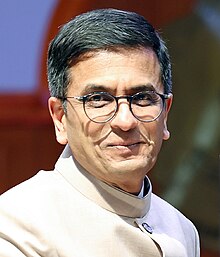Throughout his 8 years as chief justice of the Supreme Court, Justice Chandrachud has written more than 600 judgments and participated in over 1,200 benches.

Honorable Justice D.Y., the 50th Chief Justice of India. Chandrachud is retiring on 10th November. His lasting legacy will be his series of remarkable decisions.
Born on November 11, 1959, Coming from a family with a deep legal legacy, being the son of YV Chandrachud, who served as India’s longest-serving Chief Justice.
In his eight-year tenure at the Supreme Court, Justice Chandrachud penned more than 600 verdicts and joined over 1,200 benches. During this period, he delivered important rulings on various issues, including the right to privacy, freedom of speech, and gender justice.
As Justice Chandrachud’s term ends on November 10, we reflect on his most significant rulings and notable dissents on issues of public importance.
1. Right to privacy has been considered a fundamental right under Article 21.
Case title : KS Puttaswamy (Retd.) & Anr. v. Union of India & Ors
In this case, all nine judges on the Constitution Bench agreed. Article 21 of India’s Constitution states privacy is a fundamental right.
Justice Chandrachud, in his role at the time, writing for the majority, highlighted that privacy is an important part of maintaining the dignity of human life.
He also said that happiness comes from a person’s right to their own decision and dignity, which are important aspects of privacy. Justice Chandrachud believed that privacy basically protects personal intimacy, the sanctity of a person’s private life, marriage, home and sexual orientation.
2. Decriminalise homosexuality
Case Title : Navtej Singh Johar & Ors. v. Union of India
A team of five court judges amended Section 377 of the Indian Penal Code (IPC). The change decriminalised relations between consenting adults of the same sex.
Everyone in the court agreed. Section 377 is unfair. It targets people based on their sexual orientation and gender identity. This is a violation of Articles 14 and 15 of the Constitution.
Justice Chandrachud expressed that Section 377 negatively affected certain individuals. Referencing his past ruling in the Puttaswamy case, which confirmed privacy as a fundamental right, he said ignoring sexual orientation rights infringed upon privacy.
